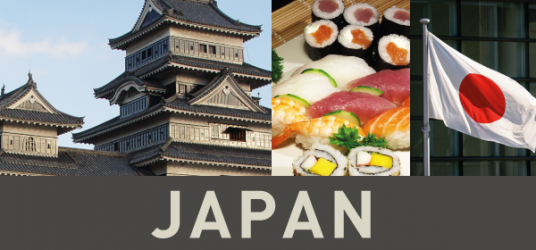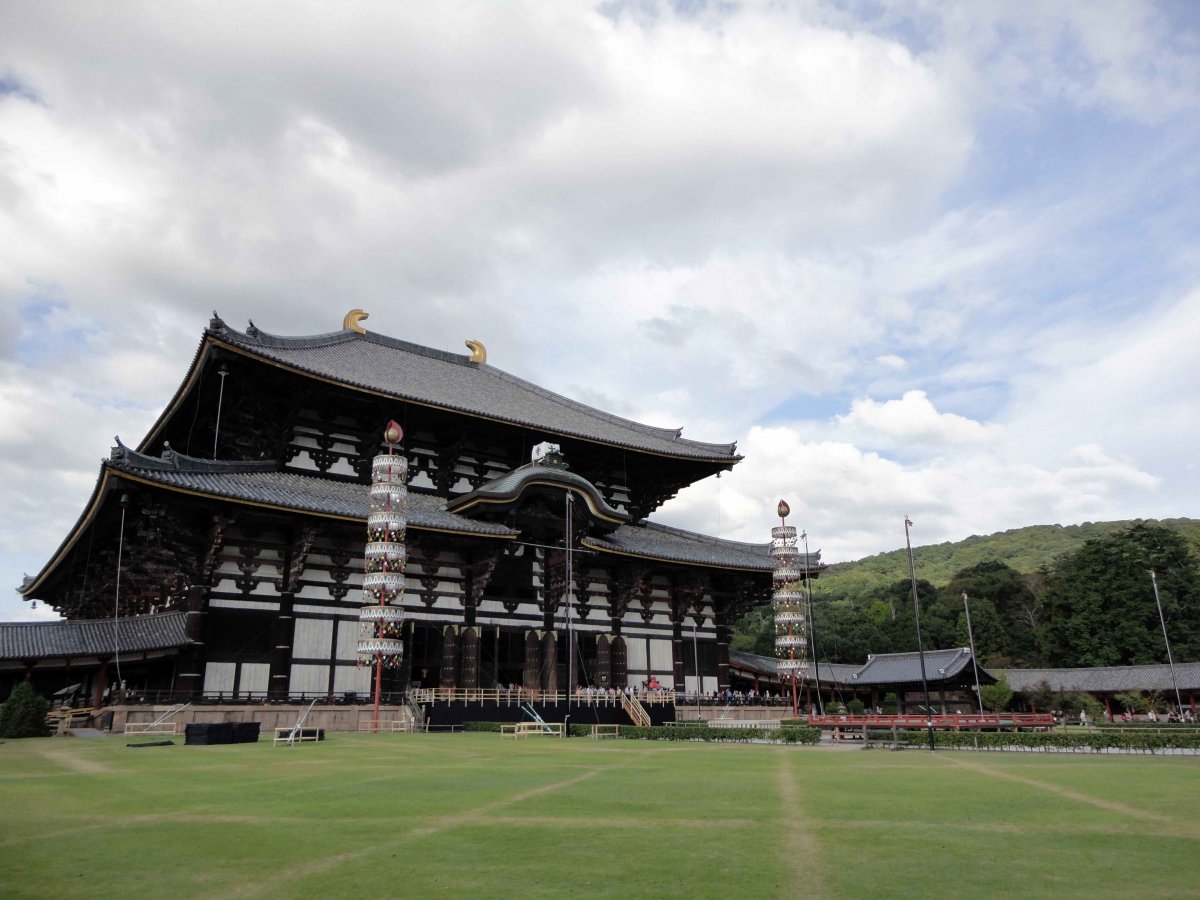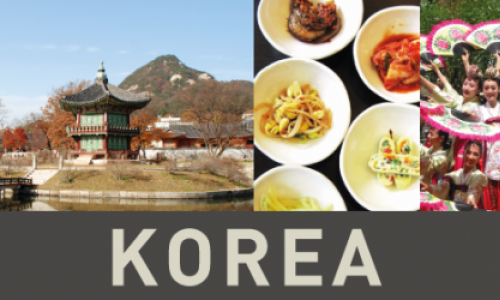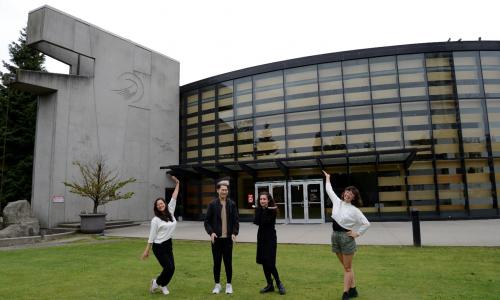
“You can know ten things by learning one"
- Japanese Proverb
Kon'nichiwa! Nihon e yōkoso!
Capital: Tokyo
Currency: Yen
Japan, otherwise known as “the land of the rising sun”, is an island country located in East Asia. The philosophy of Confucianism, which stresses harmony of relationships, respect for rank, authority and age; and loyalty to the group, is the foundation of Japanese culture.
Int’l Co-op Students’ Experiences in Japan
“NTT is a great company because it invests a lot of resources to its interns. My colleagues spent a lot of time and effort to make sure that I have a good time both at work and outside work.”
- Duncan Chan, Engineering Major
Nippon Telegraph and Telephone Corporation
“This position has been a great stepping stone for me as, in the future, I hope to do graduate work in the field of human nutrition.”
- Kristen Klassen, Kinesiology Major
Kunihiro Inc.
“The 10 months that I stayed in Japan was definitely a life-altering experience, changing my values and habits. It also gave me new inspirations and insights about my future career possibilities; and on a bigger scale understanding and tolerating something that is different…completely different. Looking back in retrospect, I would say that this adventure would probably be one of the best decisions I have made in my life. It opened up my eyes to how another part of the world operates and how the unique business-culture has lead to Japan's success”.
- Kelvin Mok, Systems Engineering Major
Yamatake Corporation, Co-op Japan Program

Working in Japan
Different cultures have different work etiquettes and nuances. When immersing in your co-op work term placement, it is important to adhere to the cultural expectations. The following information is from the Canadian Intercultures website.
-
Attire: How you should be dressed will depend on what kind of place you will be working in. Office workers are usually dressed conservatively. Men prefer dark blue suits with white dress shirts. For women; dress pants or a skirt, paired with a shirt that does not expose skin below the collar-bone, would be acceptable.
-
Workplace: When arranging meetings with Japanese business people for the first time, appointments should be made weeks in advance, as to avoid conflict.
-
Hierarchy: Hierarchy and age is very important in Japanese culture, and authority is often granted to the oldest person in the group.
-
Greetings: Japanese adults hardly call each other by their first name except among family members. At the workplace, they are addressed "(name)-san" (Mr./Mrs./Miss/Ms). Supervisors should be addressed by their title, and teachers, doctors, some artists and politicians are called "(name)- sensei."
-
Physical space: Traditionally, people in Japan place great importance on physical space. They do not like to be crowded, nor do they like to be touched by strangers. They also tend to avoid eye contact, which is intuitively perceived as an invasion of personal space.
-
Communication Styles: It is considered polite to say "I’m sorry" or "Sumimasen" frequently. While speaking, it is important to maintain good posture and a quiet, humble spirit. Avoid making hand gestures, and be sure to follow proper Japanese etiquette in a business setting.
-
Work Style: Japanese people are extremely hard-working, with the average workweek lasting 48 hours in 5.5 days. Many people work much more than the required workweek hours. Stores and shops are open long hours as well.
-
Affirmation: Group-oriented societies like Japan need to acknowledge anything that one person says to another, and the Japanese do this by saying "hai" ("yes"). This does not mean the speaker agrees with what has been said, but is a simple acknowledgement of hearing it.
-
Punctuality: Important with respect to arriving at (and not leaving early) the workplace. Absenteeism leads to demotion or dismissal before too long.

The following are some past Co-op employers that have hired SFU students. Check with the International Co-op office for other previous employers.
-
Sanyo Electric Co. Ltd
-
Fuji Electric Research and Development
-
Yamaha
-
Nippon Telephone and Telegraph Corporation
-
Prince Hotels and Resorts
The Canada-Japan Co-op Program
The Canada-Japan Co-op Program is a Canadian university/college based international co-op/internship program that links some of the best undergraduate engineering, science, business and arts students with highly committed Japanese businesses.
Interesting Facts
-
There is no “L” sound in Japanese – it is substituted by an “R” sound (so Lululemon will sound more like “Rururemon”)
-
Japan constitutes of more than 3000 islands
-
The highest mountain in Japan is Mt. Fuji, which is an active volcano
-
The famous Sushi (food), Origami (art of paper folding) and Haiku (3-line Japanese poem) all come from Japan
-
Raw horse meat is a popular entree in Japan. Sliced thinly and eaten raw it is called basashi.
-
Life expectancy in Japan is one of the largest in the world
-
Japanese enjoy slurping while eating; it symbolizes that the food is delicious
-
In the traditional Japanese home, you lather and clean outside the bathtub and rinse yourself off before entering the bath tub. The bathtub is filled with water and meant to submerge to refresh and relax – the same water is used by the whole family
-
Tea is served with practically all meals
-
Rice is the staple diet of Japanese with tea served with practically all the meals
Places of Interest
Traveling and exploring is part of the co-op experience! Here are some attractions and sights that are well-known and breathtaking. For more attractions, visit the Japan National Tourism Organization website.
-
Mount Fuji
-
Hakone Seventeen Spas
-
Kyoto Gyoen National Garden and Imperial palace
-
Wakasa Bay
-
Shibuya Center Street, Tokyo
-
Ogasawara Islands
-
Ko’oriyama Castle & Yata-dera Temple
Sayonara!
Beyond the Blog
-
Interested in pursuing an international co-op work term? Find out more on the International Co-op website.














